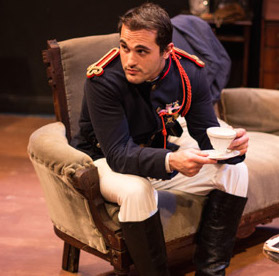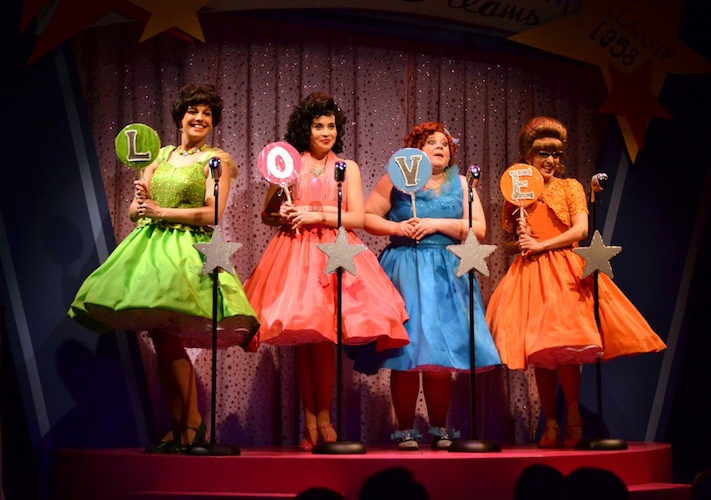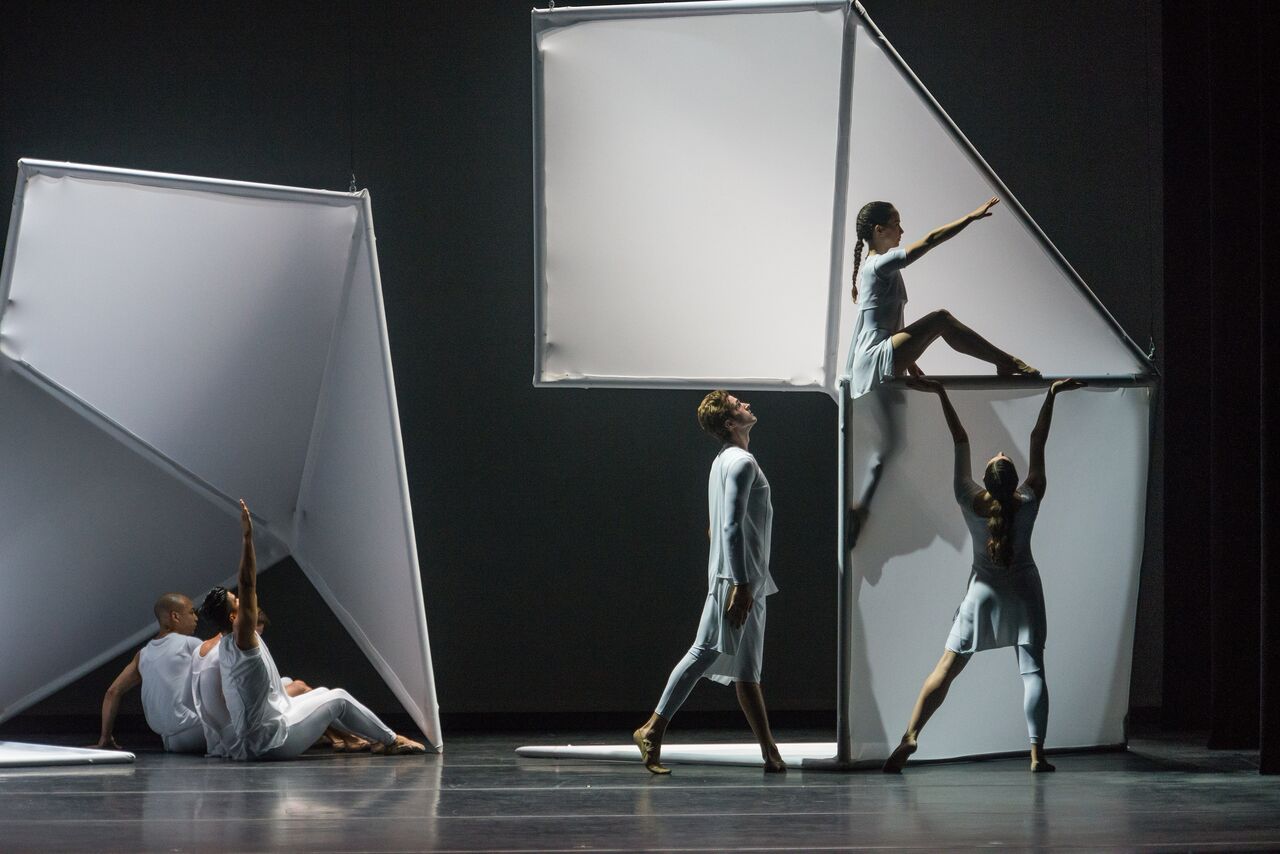A period piece that still resonates for modern audiences
By Joel Benjamin
Gilbert Emery’s 1921 The Hero gets under your skin even as you are aware of its clunky plot and paint-by-number characters. The Metropolitan Playhouse has given The Hero a robust, beautifully acted production with possibly its best set and costumes to date. Directed with subtle attention to detail by the Met’s artistic director, Alex Roe, The Hero’s characters—including a folksy grandma, a sexy foreign maid and a housewife discontented with her lot—and their problems are made somehow meaningful to a modern audience.
The title is ironic. The hero is Oswald Lane, a soldier thought to be lost who turns up at the Lane house in a suburb outside New York City, at first in the guise of a stranger who fools Hester Lane wife of Oswald’s brother Andrew, returning later to gloat over his purposeful misrepresentation. His presence in the otherwise ordinary, financially stressed Lane household is the catalyst for much off-kilter behavior. The maid, Marthe, a Belgian war refugee (WWI, of course) falls for him and becomes his mistress. Hester, who is first seen yearning for better clothing and making vague complaints about her domestic situation, is clearly attracted to him. Little Andy, Hester and Andrew’s son, enjoy the attention the uncle gives him and Andrew is positively aglow with pride for his war hero brother to the point of arranging employment for him at his very boring insurance company and having him speak at the church where Andrew serves as treasurer. After this well-attended speech, the congregation donates more than five hundred dollars, a fortune in 1919, into the contribution plate.
What happens to that money makes for vivid conflict in the last act of the play. Not all the plot points are resolved, leading to disappointments, concessions, heartbreaks and the martyrdom of the least likely character.
Emily Jon Mitchell makes a perfect grandma Sarah Lane, feisty and folksy in equal measure. Little Andy is played with childlike directness by Michael Fader who seemed unfazed by the closeness of the audience. Becca Ballenger manages to grow from servant to independent woman seemingly in charge of her life. Handsome devil Christian Rozakis finds all the sensuality that the writing—circa 1921—will allow, his movements a contrast to his uptight, righteous brother Andrew played with total lack of guile by Kevin Bernard, whose every fault turns into strength by the conclusion of The Hero. Cassandera Lollar who can’t quite hide her loveliness under the colorless period costumes, turns out to be the most conflicted character, put upon wife Hester, who changes the most by the play’s end. Even as she grumbles about the lack of glamour and color in her life, Ms. Lollar makes her sympathetic.
This is a respectful, animated production that should, for all intents and purposes, have been a boring morality play, but winds up being a living, breathing work of art.
photo: Jarka Vojtassakova
The Hero at the Metropolitan Playhouse – March 1-30, 2014
220 East 4th St., between Ave. A & Ave. B
New York, NY
Tickets and Information: 800-838-3006 or www.metropolitanplayhouse.org
Running time: 2 hours 10 minutes with one intermission























